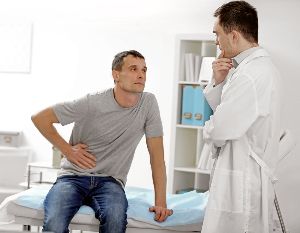
The kidneys play an important role in maintaining the body's health. The crucial organs remove toxins from your blood. If you suddenly experience pain in your lower back, stomach, or side, you may be dealing with kidney stones. This is a common medical condition that patients often have questions about. Here are helpful answers to ensure you seek treatment and take steps to prevent future stones from forming.
What to Know About Kidney Stones
What are they?
Kidney stones are mineral deposits that form in one or both kidneys. They can be as small as a sand grain or as large as a golf ball and form when calcium, salts, and minerals aren’t filtered out. Stones harden and then have to be passed through urine, which may be difficult depending on the stone's size.
What are the symptoms?

Small stones may pass painlessly and unnoticed. Larger stones may cause pain in the lower back, the sides of the abdomen, and groin as the body tries to pass them.
Additionally, you may feel like you constantly need to urinate, and urine may be bloody or cloudy. The pain can be so extreme that it can lead to nausea and vomiting. In severe cases, a fever can develop from the body trying to regulate the symptoms from the intrusive mineral deposits. When a fever occurs, it's important to seek emergency medical care.
What treatments are available?
A urologist may take a blood sample to see if there is a large concentration of calcium or uric acid—common contributors to kidney stones. They may also perform a CT scan or X-ray to see how big the stones are.
Small stones are passable with minimal pain. Often, drinking plenty of water to dilute the urine and taking pain relievers will do the trick. Larger stones need to be surgically removed or broken up. The urologist may be able to break the stone into smaller pieces by exposing it to powerful sound waves, called extracorporeal shock wave lithotripsy. If that doesn’t work, they’ll enter the kidney through the small of your back to surgically remove them.
How can I prevent them?
Hydration is essential, and those at risk or with a history of kidney stones should drink plenty of water to promote urination and pass toxins from the body. Dietary changes may also help. Cutting down on salty foods can prevent stones. If there is still a high salt and mineral content in your urine, a urologist may prescribe medication to manage it.
Whether you’re concerned about kidney stones or want to seek preventive care, book an exam with Medical Center Urology. This High Point, NC, practice is led by Dr. Richard Puschinsky, who has 25 years of medical experience. He and his team treat kidney stones and resulting symptoms. Visit their website to learn more about their services. Call (336) 882-0220 to schedule an exam.
About the Business
Have a question? Ask the experts!
Send your question

